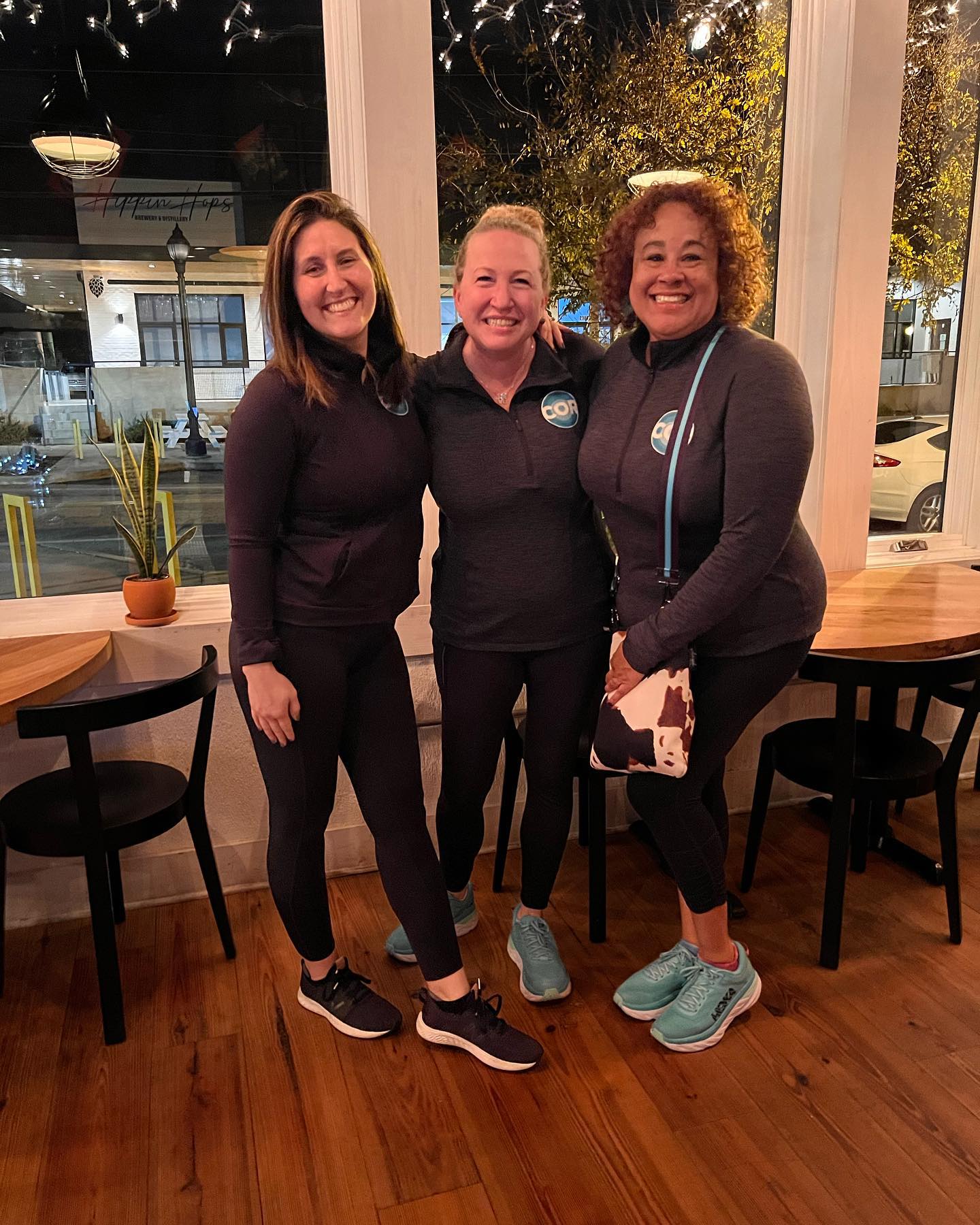It started with what some might call a wild idea. Jennifer Bartl says she’s one of three Jenn’s, the ‘Jennerators’, (the other two are Jennifer Henn and Jennifer Greenlee) who decided to create COR to support trauma-affected and historically excluded students and provide them with what they need to succeed.
Bartl says that when they decided to house their organization in Carver S.T.E.A.M Academy in south Atlanta, they knew there was a lot of food insecurity in the school. COR works in South Fulton County (30315), which has a Child Well-Being score of 30.9 (avg. score for Georgia is 68), and 55% of children in the zip code live in poverty (United Way of Greater Atlanta, 2020).
“And so we opened a grocery store inside the school. If our kiddos have food in their belly and the rest of their basic needs met, they are more likely to come to school, stay in school, and thrive,” Bartl said. The food primarily comes from Second Helpings, an organization that “rescues” food that is still good from grocery stores, restaurants, and corporate events. Available items range from prepackaged sandwiches and organic fresh produce to hygiene items and clothes, all free to students and their families.
The CORner Store also has some necessities that can’t be bought with an EBT card. For instance, the Homeless Period Project provides pre-made bags of period products for students to grab and go, making menstruation one less thing that gets in the way of learning.
COR tries to reduce any barriers that might stand between students and their needs, and they provide more than nutrition. Bartl said that COR is unique because they offer counseling, prevention education and care coordination for students and their families, on-site at school. Services are offered where kids spend most of their day. Counseling is free and doesn’t require an appointment or an insurance card, so students can walk in when needed. They also equip students with important social and emotional skills necessary for adulting.
“The Whole Child Approach is an example of how we ensure students have access to a great K-12 public education,” says Dennis Dent, communications director, redefinED atlanta. “We [redefinED atlanta] partner with organizations like COR to address intersectional issues that create barriers for student performance and negatively impact students and families,” Dent added.
“Every child, no matter their socioeconomic status, deserves to flourish at school and beyond” Bartl said.
“Our idea is that your zip code shouldn’t determine whether or not you have food in your belly or access to a decent education, or to see a successful future for yourself,” Bartl added.
The CORner Store supplements the school lunch program when there’s not much food at home. Often the lunch and breakfast they receive at school are the two guaranteed meals they have. Bartl says that allowing students and their families to shop at their grocery store helps fill in those gaps.
“Maybe it’s that dinner meal that they don’t get at school, or weekend meals, or snacks,” Bartl said.
Another benefit of the store is that it provides a point of contact with parents or guardians who may otherwise be hard to reach.
“It’s like, oh, this students’ Mom comes every Tuesday to get groceries,” Bartl said, adding that regular contact and resources also help the adults in a student’s life to see interaction with the school as positive, rather than just a sign that their child is in trouble.
Improving family engagement is a frequently discussed goal of many school districts because involved parents can mean better outcomes for students. Bartl says that developing a strong relationship with parents was a happy consequence of the pandemic – they made countless home visits and became quite the fixture in many south Atlanta front yards and porches. Connecting with parents and caregivers is something they’ve been intentional about prioritizing since a return to in-person learning.
COR tries to educate students and families about nutrition by using models like the US Department of Agriculture’s My Plate plan. They love to share personal family recipes and parents often return with pictures of what they made and stories of getting their kids to try something new.
COR’s “CORner Store” and the other on-site services they provide help keep students in school. COR also advocates for students and will try to intervene if a student is on the verge of being disenrolled due to absence, starting with asking what is happening in the student’s life.
“We try to jump in if it gets to the point of saying ‘we’re going to disenroll’ and say, can we put some brief interventions and support in place to see if we could get this kid to come to school?” Bartl said.
Bartl said that school-based grocery stores and the kind of wraparound support that COR offers is an idea that is spreading.
“There’s one at Tri-Cities High School this year and they just put one at Banneker [High School],” Bartl said.
“In a perfect world, I think that this model of tiered levels of structured, in-school support should be the norm,” Bartl added.
While improving nutrition is an important part of COR’s approach, Bartl says the goal is to reduce all of the barriers that get in a student’s way.
“It’s never just food insecurity. Poverty, housing insecurity, racism, and the subsequent historial exclusion…you can’t separate [them]. And I know that none of our families struggle with just one. It’s layered, it’s infuriating, and it’s largely preventable,” Bartl said.
redefinED atlanta is transforming Atlanta into a place where every student in every community has opportunity, well-being, and self-determination. We will continue to grow and participate in coalitions to address intersectional issues that create barriers for student performance and negatively impact students and families. To learn more about our intersectional coalitions and grow your understanding of public education, take the A.R.I.S.E. pledge today!

